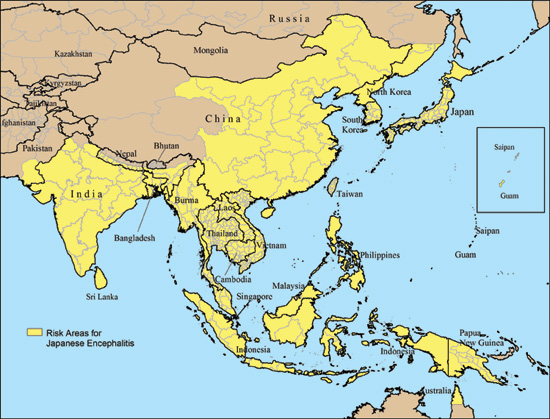
Japanese encephalitis is a deadly viral disease that kills approximately 10,000 people each year. A significant number of survivors are left with neurological problems such as impaired cognitive function, mental disorders, seizures, and poor coordination.
While Japanese encephalitis is most common in south-east Asia, including India, cases are also reported as far afield as the Torres Strait Islands, the Pacific islands and Australia.
Homeopaths have long known that the Japanese encephalitis virus can be treated and prevented by homeopathic Belladonna. Individual practitioners and some government health agencies in affected areas have used it for that purpose for decades.[1]
Now, a recent study published in the latest issue of American Journal of Infectious Diseases provides scientific support for the protective effect of homeopathic Belladonna.
Researchers from the School of Tropical Medicine, Kolkata in collaboration with Central Council for Research in Homoeopathy (under the Department of AYUSH, Government of India) have shown that Belladonna, in a range of homoeopathic potencies, was successful in controlling the virus in infected chick embryos. The placebo was not.[2]
With many of those in affected regions too poor to afford the cost of a vaccine, homeopathic Belladonna is an appropriate alternative. It is safe, simple, and inexpensive.
Footnotes
1. In one example, Public Health Centres, Government Homeopathic Dispensaries, homoeopathic pharmacies, and homoeopathic doctors distributed and administered homeopathic Belladonna during a Japanese encephalitis epidemic in Southern India in 2000. In this epidemic there had been a high number of fatalities in children. Following the administration of Belladonna there was a rapid decline in fatalities. The Hindu Online. 2003. Japanese Encephalitis on the decline in State.
2. Belladonna Study: Decreased Intensity of Japanese Encephalitis Virus Infection in Chick Chorioallantoic Membrane Under Influence of Ultradiluted Belladonna Extract

 SAHHO
クラシカルホメオパシー
&
ナチュラルヒーリング
SAHHO
クラシカルホメオパシー
&
ナチュラルヒーリング





















